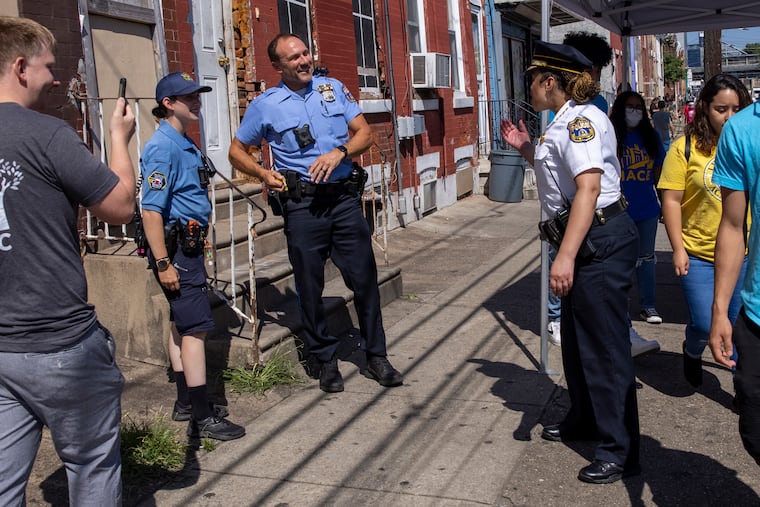300 new community police officers could help stem Philly’s pervasive violence | Opinion
As Philadelphia faces a wave of violent crime, Councilmember Cherelle L. Parker is calling for 300 additional on-the-ground beat officers and bike patrol in our neighborhoods.

Many Philadelphians live in fear of the next shooting. Last year, our city saw its highest homicide total on record, and we are on track to see as many of our neighbors lose their lives this year. Violent crime and shootings have been on the rise since the beginning of the pandemic. Gun violence makes every corner of our city feel unsafe.
But there are rays of hope from neighboring communities. Camden and Chester, cities on either side of Philadelphia, have seen dramatic drops in violence and crime because they have prioritized community policing initiatives where police are truly integrated into the communities they serve. In these cities, officers walk regular beats and establish deep and lasting relationships with the people who live and work in neighborhoods. In 2018, when Camden launched its community policing department, the chief of police called for officers to act as “guardians, not warriors.”
The numbers are eye-opening: In Camden, once considered one of the most dangerous cities in America, there were 8% fewer homicides in 2020 than in 2019 after community policing tactics were employed. And in Chester, homicides this year are down 63%, fatal shootings are down 43%, and police are making more homicide arrests with a clearance rate of 50%, the highest since 2004.
The community policing models that have been successful in Chester and Camden are replicable in Philadelphia — but it requires vision and money.
» READ MORE: Shootings and murders are down in Chester as new community-driven program takes root
The upcoming budget process provides an opportunity for Philadelphia to do the kind of proactive planning and financial allocation needed to save lives. This Wednesday, I will introduce a comprehensive plan that will focus the city’s resources, funds, and energy on much-needed community policing measures.
I am calling for 300 additional on-the-ground beat officers and bike patrol officers in our neighborhoods, particularly around our city’s commercial corridors, schools, recreation centers, and libraries, to keep Philadelphians safe. My hope is that these neighborhood officers will grow and nurture relationships with the community, rebuilding trust. They will be known by shopkeepers, people sitting on their steps, families, and teenagers as emissaries of the police department and city government — guardians, not warriors — who will serve and protect neighborhoods that are part of our community tapestry. As they do in Chester, after a murder, community police should walk the streets, talking to people and handing out fliers asking for help.
But police on the ground cannot do it all. That is why City Council must also allocate funding to ameliorate quality-of-life issues in our neighborhoods. This includes improving road safety by clearing abandoned cars and impounding ATVs, dirt bikes, and other illegal street vehicles; improving street lighting; installing more police cameras; and regularly cleaning the streets and sidewalks in our neighborhoods and commercial corridors.
The city must also do a better job protecting victims of crime. This can happen through improvements to 911 including texting features, creating a public website to track crime, increasing rewards for people who report a violent crime, and increasing witness relocation funds so that witnesses have the resources they need to step forward and report crimes without fear of retaliation.
And finally, the city should build bridges for greater community involvement in public safety by providing everyone better access to have their safety concerns heard immediately. This could include increased training for community safety organizations; funding alternative opportunities to deter crime through mentoring and restorative justice programs; enforcing curfews in coordination with block captains, neighborhood groups, and schools; and investing in de-escalation professionals who are trusted in their communities to stop violence before it starts.
I understand the implication of providing additional funding for the police at a time when calls to “defund the police” are popular with some people. I am ready to engage with anyone who does not think that this is the right approach to keep our city safe, and I will use whatever capital I have to get it passed as quickly as possible.
It is time to reimagine policing in Philadelphia to ensure public safety. Doing so will require additional funding, but the costs are worth it when we are talking about saving lives.
Cherelle L. Parker is Philadelphia City Council’s majority leader, representing the Ninth District.